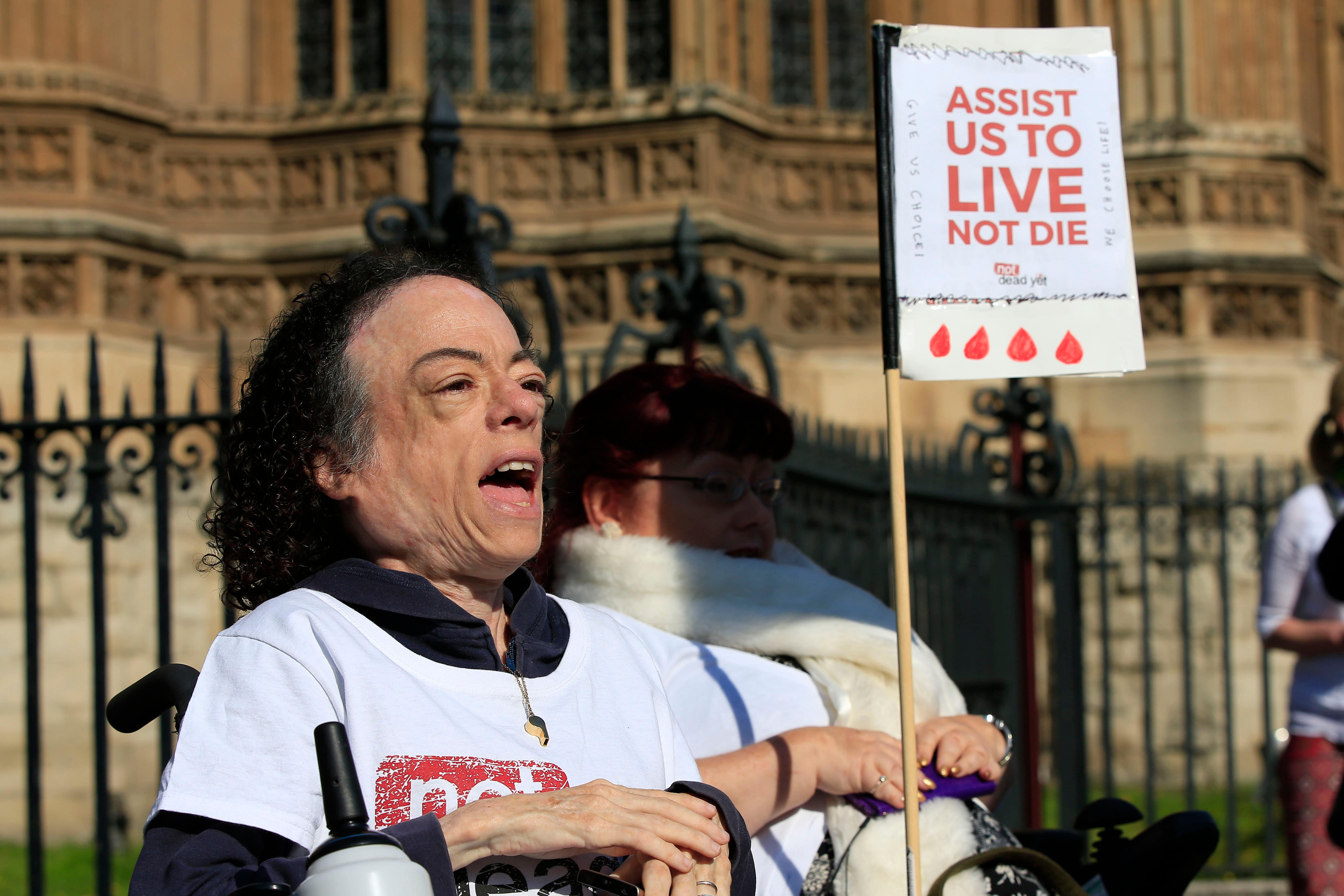Assisted dying: Silent Witness star warns MPs not to be ‘seduced’ by wording
The disability rights activist is opposed to a change in the law while high-profile supporters include Dame Esther Rantzen.

Legalising assisted dying would be a “country-defining moment” but there is no safe way to change the law while guaranteeing the protection of disabled and elderly people, actor and campaigner Liz Carr has insisted.
The Silent Witness star said it is easy to “be seduced” by words such as compassion and choice in the conversation around the controversial topic but has voiced her strong opinions against change.
Her warning came ahead of the formal introduction of a private member’s bill in the House of Commons on Wednesday described as offering choice at the end of life.
High profile supporters of legalising assisted dying include Dame Esther Rantzen who is terminally ill and has pleaded with the public to write to their MPs to ask for “the right to choose, not to shorten our lives, but to shorten our deaths”.
But, in an interview with the PA news agency, TV star Carr said: “This is not the time to be swayed simply by words like compassion, dignity and choice.
“They’re easy to fall in love with, those words, and be seduced by. This is about real hard facts, figures, evidence, people’s lives.
“Can we deliver on that safely? Can we safeguard lives and are disabled, older and ill people going to be safe and protected with a change in the law? I don’t think so, no.”
Carr presented a BBC documentary titled Better off Dead? earlier this year which explored the legalisation of assisted dying and its potential effect on vulnerable or disabled people.
She told PA: “I’ve had so many, anecdotally, so many people come to me (after the programme) and say, ‘it has changed my mind, I have changed my mind, I had no idea. I might think it’s a good idea, but I see it’s not safe’.”
Kim Leadbeater, the Labour MP behind the bill, said she is “proud and very pleased” to introduce the bill.
She said: “There is absolutely no question of disabled people or those with mental illness who are not terminally ill being pressured to end their lives. And I am equally clear that what I am proposing is not an alternative to the very best palliative care being available across the country, something I strongly support.”
But Carr described any change in the law on assisted dying as a “major, country-defining moment” which should be the subject of a Royal Commission – an advisory committee appointed by the Government to look into a specific issue.
Urging MPs, who are likely to have a first vote on the bill at the end of November, to listen to “all voices in this debate” she argued opponents have previously “been marginalised as being religious and discredited for that reason”.
She added: “There are huge numbers of people, particularly many disabled people, disabled activists, who are so concerned with these laws and can talk to MPs about it and why that is.”
The wording of the bill has not yet been published but some of those in favour have urged that it include those facing unbearable suffering as well as those who are terminally ill.
Carr said limiting the bill to the terminally ill would not lessen her fears about its potential consequences for vulnerable people.
It is essential that we get this right which is why the debate cannot be rushed. But nor can it or should it be put off
She said: “Neither (the bill being limited to terminally ill or being wider) allay my fears, neither make me feel less worried.
“Because I know this is such a concerted campaign and such a push, and there are huge lobbyists nationally, internationally to change these laws that I just don’t feel reassured because they want what they want, and what they want is to legalise assisted suicide.”
MPs will have a free vote in Parliament, deciding according to their conscience rather than along party lines, but Carr expressed concern that Prime Minister Sir Keir Starmer has previously supported assisted dying and made a personal promise to Dame Esther to make time for a debate and vote on the issue.
Carr said: “It should have the highest standards, not be rushed through because Starmer made a promise to somebody, and not rushed through because this is what he wants.”
Sir Keir has previously said he is “personally in favour of changing the law” and supported a change the last time the issue was voted on in the Commons nine years ago.
Last week, the PM called the matter a “really important issue” and said any change to the law must be “effective” but he has insisted the Government will remain neutral in a vote.
Ms Leadbeater said she will consult “very widely” before publishing details of the contents of her bill closer to the November debate, insisting it is “important that we get the legislation right, with the necessary protections and safeguards in place”.
She said the conversation had so far been “respectful”, adding: “I know some people think there should be no change to the law and there are others who would like to go further, but it is essential that we get this right which is why the debate cannot be rushed. But nor can it or should it be put off.”
Bookmark popover
Removed from bookmarks